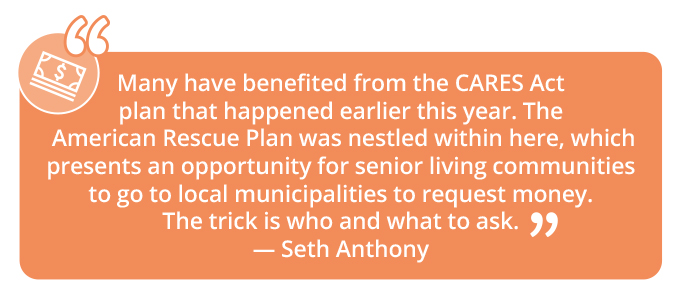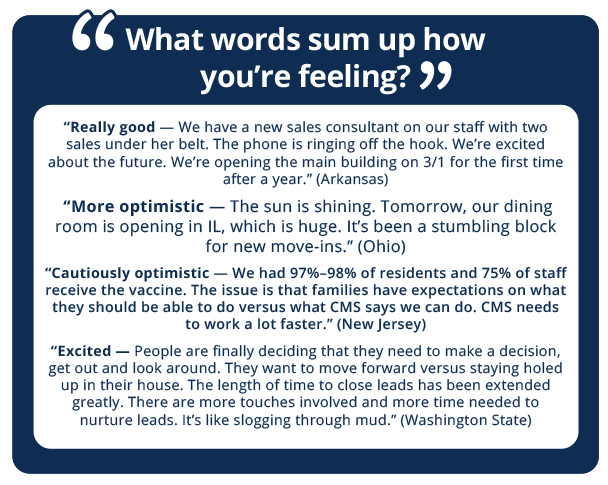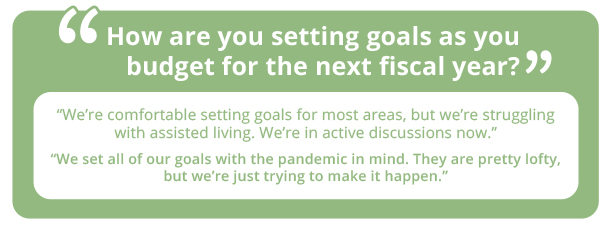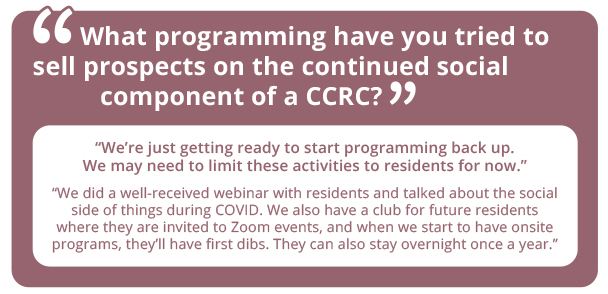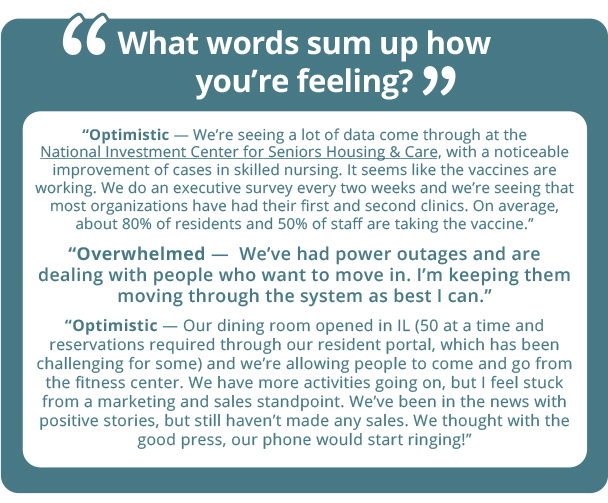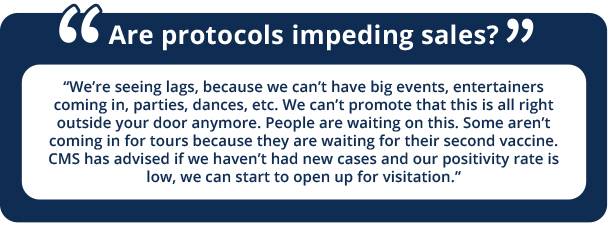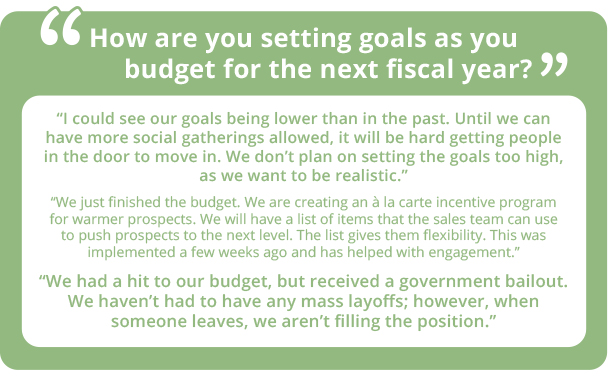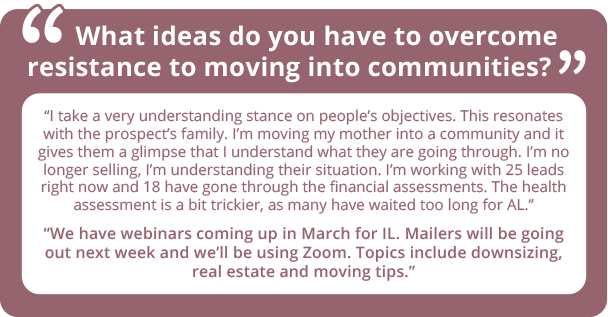“Half the money I spend on advertising is wasted; the trouble is I don’t know which half.” Those are the words of John Wanamaker (1838–1922), a very successful United States merchant, religious leader and political figure, considered by some to be a pioneer in marketing.
Anyone who is a marketer for senior living communities can relate to that statement. But there is a way to know where your marketing dollars are really going, and it’s by harnessing your data using predictive analytics.
That concept was the focus of a 2021 LeadingAge Conference session, “Predictive Analytics: Connecting Past Performance to Future Success,” a joint presentation by Varsity, its sister agency WildFig Data and Ingleside Senior Living.
“Retirement communities in general are data rich and insight poor,” says John Bassounas, Partner at Varsity. “Sometimes when it comes to analytics and data, people get overwhelmed. Really, at the end of the day our job is to simplify that process and deliver insights that can help communities make better decisions.”
During these challenging times, harnessing your data is especially important. “As an outgrowth of COVID-19,” John says, “everyone is trying to figure out the role of digital — how organizations can establish a competitive advantage. Data is the way to do that.”
A Progressive Partner
Varsity and WildFig have been fortunate to partner with Ingleside, a forward-thinking, multi-site, nonprofit senior living organization located in the Washington, D.C., area. “Data analysis was a leadership initiative at Ingleside,” says John. “It started at the top, and leadership identified data analytics as a key priority for their organization. In doing so, they partnered with us, and we became an extension of their team.”
“This is a visionary client,” agrees Derek Dunham, Vice President Client Services at Varsity. “They have established team members focused on the digital experience in analytics — they see the value in it. They have been an early adopter of data mining and analytics.”
Here are some key takeaways from the LeadingAge presentation based on our work with Ingleside:
1. Consider all of the digital elements as an ecosystem, not siloed tactics.
“One of the goals here is to make sure that we’re not just looking at isolated tactics. We need to assess the impact of the entire digital ecosystem of paid, owned and earned media,” says Derek.
“From a marketing perspective, understanding the relationship between the various tactics and strategies to the overall program is incredibly valuable, because we want to optimize the plan for the best results.”
“For Ingleside, an important part of the ecosystem is a fresh website that is newly programmed using all the modern tools. Technology is always changing. With a new website, we don’t have to dumb down any of the analytics because the site can plug into analytics and pull data easily.
2. Embrace the process — Each organization is at a different stage with their analytics and modernization journey.
“It’s important for any organization to have the mindset that this is a process,” says Derek. “It’s not going to be a one-off project; it’s a culture. It’s an ongoing initiative that needs to be fed over time. I would say, assess what you have and get going. Taking the first step is important as this process is never ‘done’ — there are always opportunities to refine, test and learn.”
“Some organizations might think, ‘We don’t have all the data we need.’ Others may think, ‘We have too much data.’ Don’t let a lack of data stand in the way of proceeding with initiatives,” John says. “The first thing you need to ask is, ‘What is the question that you want to answer, and how can data make that happen?’”
3. Start with the big questions — Others will emerge.
“Starting with the big questions means, don’t get mired down in the details,” Derek says. “First think about what are the big questions you want to have answered. A question might seem too big initially, but you’ll be able to break it down into smaller questions and put together a manageable process.”
As an example, here are some of the questions that Ingleside wanted to answer:
- How do we reach and maintain 95% occupancy?
- How can we use data to make informed decisions?
- How can we predict future outcomes?
- Should the website be redesigned and merged under one URL?
4. Think not just about outcomes, but about implementation, and how to create a dynamic feedback loop.
“It’s an iterative process, and you’re constantly going to be refining it,” says Derek. “You want to look at the outcomes at a point in time. With this process, you are able to have confidence that you can pull your data at any point in time and get answers.”
Once the loop is established, John says, “We can either look backward at what has happened, or we can look forward to help inform what we’d like to have happen or predict outcomes.”
5. Customize the sales experience through predictive modeling.
“The overall goal of data analytics is to be able to understand the data to provide prospects with a customized experience — making the entire process from a marketing and sales perspective more efficient,” Derek says.
“For organizations like Ingleside, we’re doing that through a predictive modeling tool that does two things — predicts what lead volume will be, and assigns a lead score to every prospect in their database. We’ll be able to map each prospect’s customer journey and know the likelihood of their becoming a depositor at each interaction with the salesperson,” says John. “This map can be generated for every prospect, providing an easily digestible way to monitor the sales process.”
Why is that so important? “We all know that it takes anywhere from 20 to 30 touches for somebody to move in,” says Derek. “The more we can make those touches relevant and purposeful and efficient, the better. Through that process, we also make the salesperson’s time efficient, because they’re dealing with the people who are most predisposed to buying. We’re offering the salesperson better information so they are better able to connect with the right prospects.”
If you’d like the Varsity team to take you through the presentation in more detail, please contact John Bassounas at JBassounas@varsitybranding.com or Derek Dunham at DDunham@varsitybranding.com.













